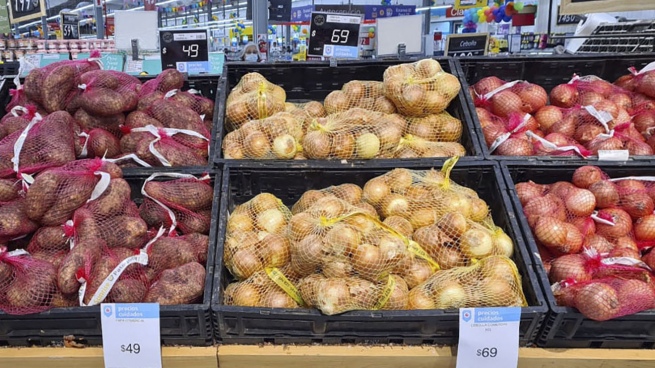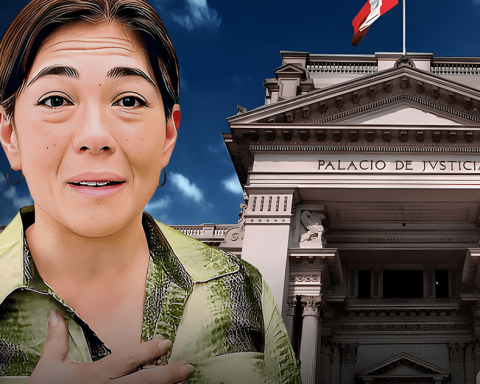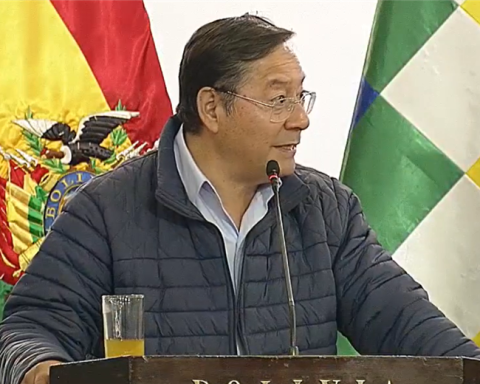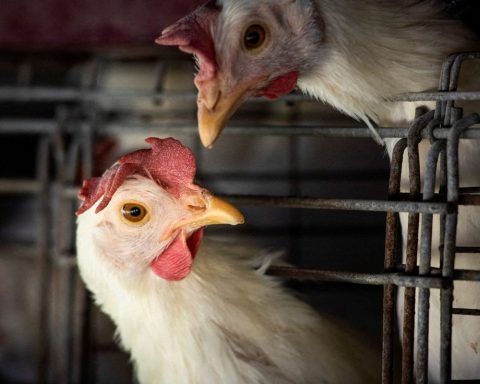The Government added from this Monday within +Prices Care a complementary basket of 60 essential products for local businesses and, at the same time, an offer of fresh vegetables with the most consumed goods in the greengrocery category, as part of the measures agreed last week with different production and marketing sectors.
The expectation is that, throughout this week and the next, the 60 products on the list of the basket will be available in wholesalers and will reach the shelves of Chinese stores and supermarkets.
From Internal Trade they told Télam that As of this Monday, the products will be available at the prices agreed in the wholesalers for the stores, but the arrival of the products on the shelves may take a few weeksdepending on the stock replenishment periods of each store.
They also specified that the proximity basket is an agreement in which businesses participate optionallyso the control will pass by not allowing the products to be sold at an unestablished price.

Through the Ministry of Domestic Trade, consensus was reached and added within +Precios Care a complementary basket of essential products for local businesses, with 60 mass consumption items that are sold in local businesses throughout the country from this Tuesday, it was officially reported. The program includes personal hygiene items, household cleaning, food and drinks.
The objective is for this initiative to establish reference prices in local businesses, in order to reduce the dispersion of values that exists between these stores and the large supermarket chains.

Speaking to Télam, the director of the Federation of Supermarkets and Chinese Associations (Fesach), Miguel Ángel Calvete, pointed out that “As long as wholesalers and distributors provide the products, obviously they will be able to be marketed”.
He expressed the expectation that throughout the week the products will be available in wholesalers and affirmed that “there will be some weekly follow-up meetings starting next week” with authorities from the Ministry of Domestic Trade.
Regarding the profit margin that was agreed for the businesses in this basket, he said that “it is not ideal, but having those prices drives the sale of other products, so it works and allows the client not to be held hostage by large chains.”
For his part, the president of the Federation of Grocers of the province of Buenos Aires (FABA), Fernando Savore, told Télam that “Evidently today each colleague will go to the wholesaler in search of these products, during the week we will see if the products are there”.
“We do not have direct purchases, we depend on wholesalers. If the wholesaler has the product and the price, we are going to buy it and we are going to sell it at what it says there,” he added, while “only milk provides us in directly Mastellone and this week we will have it”.
He argued that “the good thing about this program is that there are clear rules, there is a purchase price and a sale price; there is transparency, it was a very important issue raised by the Federation, that there is a purchase price and a sale price, so we know what is our profitability?

On the other hand, when asked by Télam, from the Argentine Chamber of Distributors and Wholesale Self-services (Cadam) they indicated that they were waiting to receive the lists of the companies to have the sixty products in the next few days.
Julián Moreno, president of the Assembly of Small and Medium Entrepreneurs (Apyme), told Télam Radio that “We consider the new Care Prices agreement to be positive, like any other government measure that seeks to reduce the increase in the population’s food basket and basic consumption, more so in this context of high international inflation”.
He highlighted “the incorporation of products for local businesses, which incorporates these SME units into the program, which until now had been left out of it and had been suffering from unfair competition since this tool, which we believe is necessary in connection with price control, is It only applied to the big chains.
“At the same time, we understand that these tools are only a palliative that allows us to save time, but in no way are they a fundamental solution; the measures that our sector demands have to do with public intervention in the value chains of the large producing corporations. of basic consumer goods and especially that monopolistic, oligopolistic supplier, with the risk of cartelization,” he added.
Fresh vegetables
The level of compliance with the supply of the new basket of fruits, vegetables and vegetables was 80% on its first day of implementation both in prices and in supply, the Ministry of Domestic Trade reported on Friday night.
“Lhe basket containing five products (tomato, potato, onion, lettuce and apple) was available in all the chains surveyed. And, although shortages were observed in some places, in no case was an offer of less than four of the five fruits and vegetables contemplated in the program detected”held the portfolio led by Roberto Feletti.
The official agency stated that “from the Ministry of Domestic Trade, dialogue was held with both wholesale suppliers of the products in question, as well as with the Association of United Supermarkets (ASU) and representatives of the different marketing chains, and, in all cases, they expressed satisfaction with the development of the program, while highlighting the strong demand that it had in the different branches”.

“In the coming days, from Internal Trade, a series of work meetings will be held with more suppliers who want to join the initiative, to continue guaranteeing and thus expanding the supply in all the participating businesses,” they added.
For April, the selected products and prices (per kilo) are: potato (black) at $49, onion at $69, tomato (round) at $199, lettuce (criolla or nasturtium) at $160 and apple (royal gala) at $180.
The selected fruits and vegetables are available, initially, in the Metropolitan Area of Buenos Aires (AMBA), every day, in the Día, Walmart, Changomas, Jumbo, Vea, Disco, Coto, Carrefour and Makro supermarkets. .


















